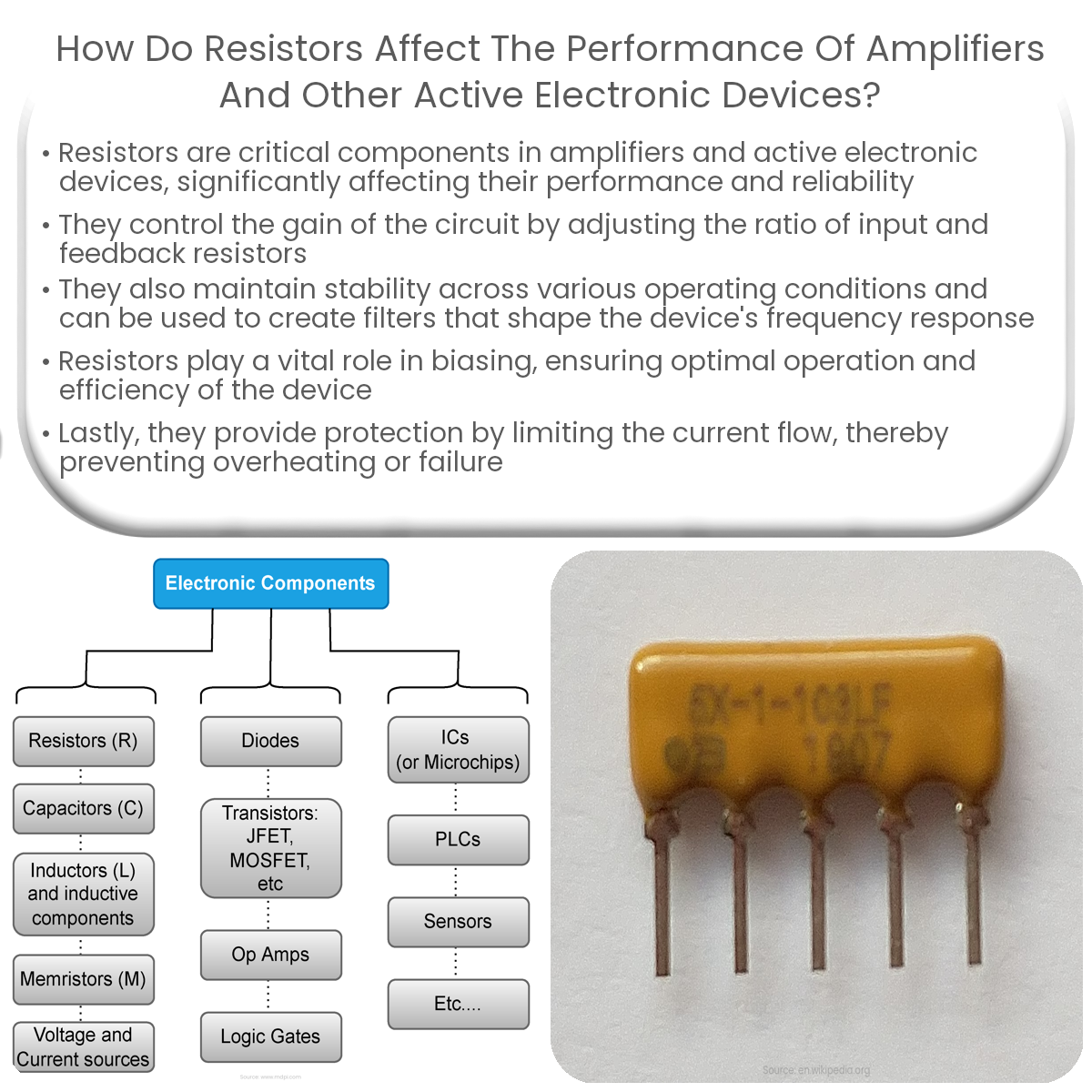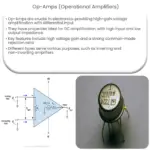Resistors impact gain control, stability, frequency response, biasing, and protection in amplifiers and active electronic devices, shaping performance.
Resistors in Amplifiers and Active Electronic Devices
Resistors play a crucial role in the performance of amplifiers and other active electronic devices, impacting their gain, stability, and frequency response. This article delves into how resistors influence the performance of these circuits.
Gain Control
One of the most important functions of resistors in amplifiers is controlling the gain. In operational amplifiers (op-amps), resistors are used in the feedback loop to set the gain of the circuit. By adjusting the ratio of the input and feedback resistors, the amplifier’s gain can be tailored to a desired level, impacting its output signal strength.
Stability
Resistors are essential for maintaining the stability of active electronic devices. In some cases, adding a resistor in series with the input or output of an amplifier can prevent oscillation or improve the stability of the circuit. The right resistor values ensure that the circuit remains stable across different operating conditions, such as temperature variations and component tolerances.
Frequency Response
Resistors, in combination with capacitors or inductors, can create filters that impact the frequency response of active electronic devices. In amplifiers, these filters can be used to shape the bandwidth and roll-off characteristics, ensuring that the device amplifies only the desired frequency range. Additionally, resistors can be used to create high-pass, low-pass, or band-pass filters, allowing for precise control over the frequencies that are amplified or attenuated.
Biasing
Resistors play a vital role in the biasing of active electronic devices, such as transistors and op-amps. Proper biasing ensures that the active device operates in its intended region, maximizing its performance and efficiency. Resistors are used to set the correct voltage and current levels for the device, which can significantly affect its overall performance.
Current Limiting and Protection
Resistors are often used to limit the current flowing through an active electronic device, protecting it from damage due to excessive current. By carefully selecting the resistor value, the current can be limited to a safe level, ensuring the device operates reliably without the risk of overheating or failure.
In conclusion, resistors are integral components in the performance of amplifiers and other active electronic devices. They influence gain control, stability, frequency response, biasing, and protection, ultimately shaping the overall performance and reliability of the circuit.




